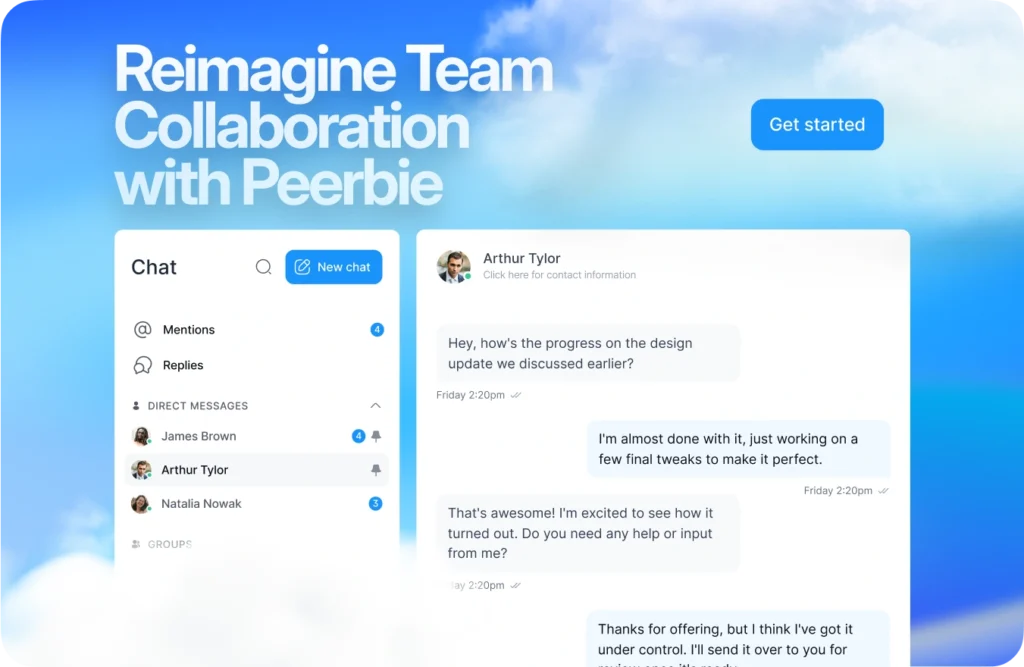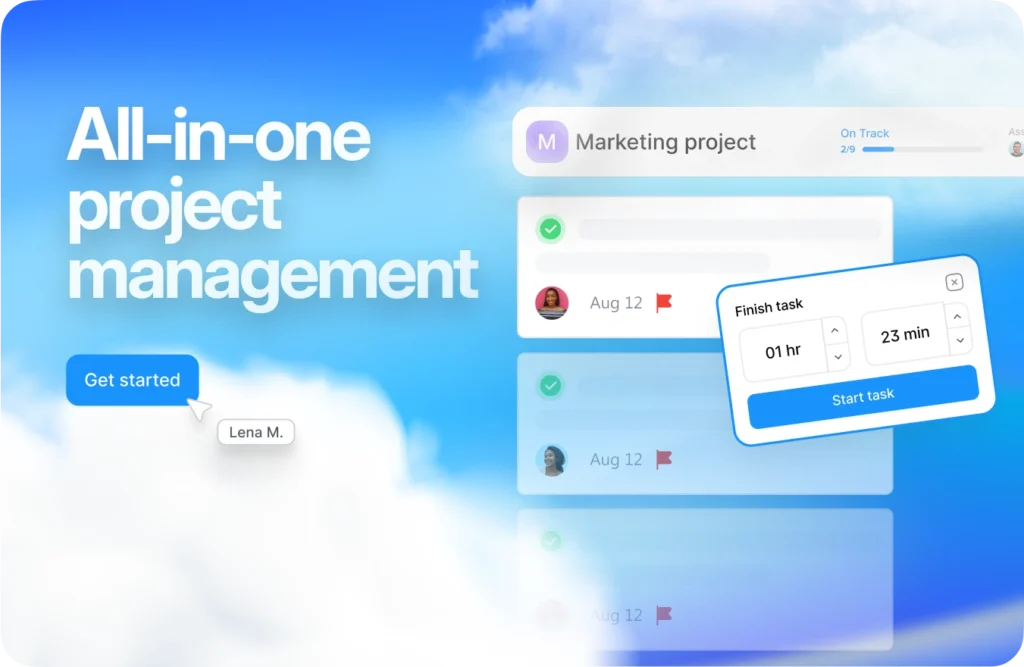B2C vs. B2B Product Management: Key Differences & Strategies

In the dynamic world of product management, it is crucial to understand the differences between Business to Consumer (B2C) and Business to Business (B2B) models. These differences significantly impact your approach to product development, marketing, and customer engagement, forming the foundation of a solid business description model. Whether you’re managing a product that’s consumer-focused (B2C) or aimed at business users (B2B), the challenges and to-do lists that product managers (PM) face often overlap, but each field comes with its own unique dialects. This guide will explore the unique aspects of B2C and B2B product management and provide actionable strategies to help you succeed in each area.
For those working in product management, it is inevitable to think about the differences and similarities between B2C and B2B environments. Understanding these key distinctions is vital to success as a Product Manager. Both B2C and B2B product management roles require balancing iteration with the needs of the target audience, but the strategies and principles that drive success in each may differ. This comprehensive guide will help you optimize your approach depending on your market, providing insight into the nuances and transferable skills that can bridge the gap between B2B and B2C, ensuring you deliver effective products that meet customer needs and drive business growth.
What is B2C Product Management?
B2C (Business to Consumer) product management revolves around creating and delivering products directly to individual consumers. This type of management requires a deep understanding of consumer behavior, preferences and market trends. B2C product managers focus on producing products that resonate with a broad target audience, which often requires extensive market research and consumer feedback.
The goal is to improve the end-user experience by developing products that meet the emotional and practical needs of consumers. Marketing and branding play important roles in B2C product management, as products must capture consumer attention and build strong brand loyalty to encourage high-volume sales.

What is B2B Product Management?
B2B (Business to Business) product management focuses on the creation of products and services that are sold to other businesses. This management approach emphasizes understanding the operational needs and challenges faced by business customers. B2B product managers develop solutions designed to increase the efficiency and productivity of their customers’ operations. This often involves detailed customization and scalability to fit the unique needs of different businesses.
The sales process in B2B is often more complex and involves longer cycles, multiple stakeholders, and detailed negotiations. Successful B2B product management is based on building strong, long-term relationships with customers and delivering products that integrate seamlessly with their existing systems and processes.

How is B2B Product Management Different from B2C Product Management?
Understanding the key differences between B2B and B2C product management is crucial to developing effective strategies in each field. Here are the differences between them:
- Target Audience and Buyer Behavior:
B2C: The primary focus is on individual consumers who make purchasing decisions based on personal needs, preferences, and emotions. B2C products must appeal to a broad audience, requiring deep insights into consumer behavior and market trends.
B2B: The target audience consists of businesses that purchase products to enhance their operations or services. These decisions are typically rational, driven by factors like return on investment (ROI), efficiency improvements, and long-term benefits. Understanding the business needs and decision-making processes of client organizations is essential.
- Sales and Marketing Strategies:
B2C: Marketing strategies in B2C are designed to capture the attention of a large audience. Techniques often include emotional appeals, strong branding, and extensive use of digital and social media marketing. The sales process is generally shorter, driven by impulse buying or immediate needs.
B2B: B2B marketing is more targeted and focuses on demonstrating the technical benefits and ROI of a product. The sales cycle is longer and involves complex negotiations with multiple stakeholders. B2B sales rely heavily on building relationships and trust with clients.
- Product Customization and Scalability:
B2C: Products are usually standardized to appeal to a wide range of consumers. While there may be variations in options and features, the core product remains consistent across the consumer base.
B2B: Products often need to be customized to meet the specific needs of different businesses. This customization can range from minor adjustments to extensive modifications, requiring the product to be scalable and adaptable to various business environments.
- Customer Relationship Management:
B2C: Relationships with consumers are often short-term, focused on individual transactions. Customer loyalty is built through brand experiences, quality of service, and ongoing engagement through marketing efforts.
B2B: Relationships with business clients are typically long-term and involve ongoing support and collaboration. Maintaining strong, enduring relationships is crucial for repeat business and long-term contracts.
- Decision-Making Processes:
B2C: The decision-making process in B2C is relatively simple, often involving a single individual or household making a purchase based on personal preference.
B2B: B2B decisions are more complex, usually involving a team or committee. The process considers various factors such as cost, return on investment, compatibility with existing systems, and potential for long-term partnerships.
Strategies for Effective B2C Product Management
- Leverage Consumer Data: Utilize analytics tools to gather insights on consumer preferences and behaviors. Reporting tools and customer feedback systems are invaluable for making data-driven decisions.
- Focus on User Experience: Design products that offer a seamless and engaging user experience. Agile methodology can help iterate and refine products quickly based on consumer feedback.
- Build Strong Brand Identity: Invest in creating a compelling brand that resonates emotionally with consumers. Utilize social media, content marketing, and digital advertising to strengthen brand presence and loyalty.
Strategies for Effective B2B Product Management
- Understand Client Needs: Develop a deep understanding of your clients’ business operations, challenges, and goals. This often involves direct communication and relationship-building to tailor solutions effectively.
- Develop Long-Term Relationships: Focus on establishing trust and long-term partnerships with clients. Regular communication and the use of collaboration software can enhance these relationships.
- Offer Scalable Solutions: Ensure that your products can scale and integrate smoothly with existing systems and processes within client organizations. Business productivity platforms can be instrumental in providing scalable solutions.

Integrating Technology in Product Management
AI Project Management: Incorporating AI can streamline various aspects of project management, making them more efficient and responsive to changes.
All-in-One Work Management Tools: These tools help in integrating multiple project management functions into a single platform, improving overall productivity at work and coordination.
Online Collaboration Tools: Both B2C and B2B teams benefit from digital collaboration tools that facilitate remote work, team communication, and project tracking.
Peerbie’s Role in Enhancing Product Management
At Peerbie, we understand the diverse challenges faced by both B2C and B2B product managers. Our platform is designed to support a wide range of product management needs, offering comprehensive solutions that cater to the unique requirements of each sector.
- Seamless Collaboration: For B2B product management, maintaining strong communication and collaboration with clients is crucial. Peerbie offers robust digital collaboration tools that facilitate seamless interaction with stakeholders, ensuring that your team and your clients are always aligned on project goals and deliverables.
- Scalable Solutions: Peerbie’s platform is designed to handle the scalability needs of both B2C and B2B projects. Whether you need to manage a large volume of consumer feedback or tailor solutions for different business clients, Peerbie provides the flexibility and power to scale your operations efficiently.
- Integrated Work Management: Peerbie serves as an all-in-one work management tool, integrating various aspects of project management into a cohesive system. From task management and resource allocation to project tracking and reporting, our platform streamlines your workflows, making it easier to manage complex projects and improve overall productivity.
- Enhanced Reporting and Analytics: Understanding project performance and customer feedback is key to successful product management. Peerbie offers advanced reporting tools that provide insights into project progress, team performance, and customer satisfaction, allowing you to make informed decisions and improve work performance.
- Support for Remote Teams: In today’s increasingly remote work environment, managing distributed teams can be challenging. Peerbie’s remote work software is designed to facilitate effective communication, task coordination, and project tracking, ensuring that your team remains productive and cohesive regardless of location.

By leveraging Peerbie’s comprehensive suite of tools, product managers can streamline their processes, improve collaboration, and achieve greater success in both B2C and B2B environments. Our platform is designed to support your specific needs, helping you easily navigate the complexities of product management.
To learn more about how Peerbie can improve your product management practices, contact us today and discover how our solutions can transform your approach to project management.
Navigating the nuances of B2C and B2B product management requires a deep understanding of their unique challenges and opportunities. By adopting tailored strategies and leveraging the right tools, product managers can drive success and innovation in both realms. Embrace the distinct approaches to B2C and B2B product management to elevate your products and achieve remarkable outcomes.

